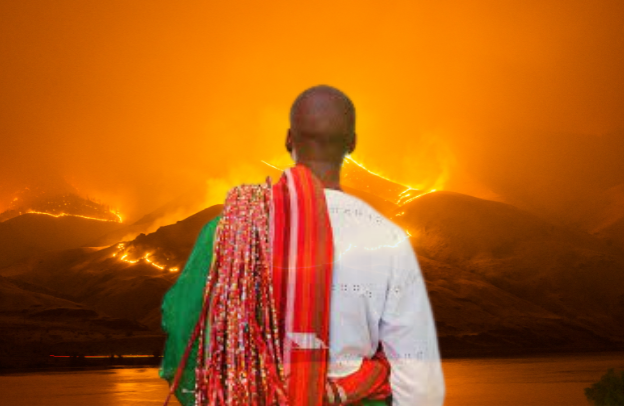Indigenous Knowledge Systems: A Pathway to Reconnecting with Our Ancestral Roots

What if the key to Africa’s sustainable future lies within its past? Could the ancient practices of indigenous communities, passed down through generations, hold the answers to pressing environmental and societal challenges today? As an African descendant, have you ever wondered about the wisdom your ancestors held in their daily lives—wisdom that was once the lifeblood of vibrant communities?
Learn How to Leverage Your Story through our Story To Asset Transformation (S.A.T) Framework.
Indigenous Knowledge Systems (IKS), which have long been overshadowed by Western narratives, are now being recognized globally for their invaluable contributions to sustainable development. But what does this mean for you, as part of the African diaspora, seeking to reconnect with your roots and preserve this rich heritage?
The time has come to rediscover the beauty and power of IKS—an intricate, dynamic system of knowledge that is not only the key to understanding the past but the pathway to a sustainable future.
Colonialism’s Impact on Indigenous Knowledge Systems
To understand the significance of Indigenous Knowledge Systems, we first need to acknowledge the violent disruption caused by colonialism. From the late 19th century onwards, European powers sought to dominate the African continent, displacing not just political autonomy but also cultural and intellectual sovereignty.
Colonial administrators ridiculed African knowledge, often branding it as “primitive” or “superstitious” to justify their imperialist motives.
For instance, the Great Zimbabwe Monuments, a sophisticated and awe-inspiring testament to the architectural prowess of the Shona people, were long denied recognition as an indigenous creation, with colonialists insisting they must have been built by foreigners.
See also Which Great Ancient African History Mostly Inspires You As An African?
The denial of these monumental achievements was a key tactic in undermining African identity and intellectual legitimacy.
However, in recent decades, the world has come to recognize that IKS were not just surviving but thriving before colonial rule. These systems were, and still are, solutions derived from centuries of lived experience—solutions that, despite the disruptions of colonization, are finding renewed relevance in the modern world.
The Resurgence: Rediscovering the Wisdom of the Past
As the shackles of colonialism loosened across Africa, interest was resurgent in reclaiming what had been lost. Countries like Zimbabwe, for example, have incorporated IKS into environmental and educational policies, recognizing their immense value for sustainable development.
Zimbabwe’s Environmental Policy, for instance, emphasizes that “Indigenous technical knowledge and traditional practices have a valuable contribution to make to the management and sustainable use of natural resources” (GoZ, 2009).
This policy highlights the wisdom of local communities in conserving land, water, and biodiversity—knowledge that has been passed down for generations through oral traditions, rituals, and community practices.
Incorporating IKS into education systems also offers an opportunity for African nations to build a more holistic and culturally relevant curriculum.
In Zimbabwe, the Environmental Education Policy recommends integrating indigenous knowledge into schools to ensure that future generations understand and appreciate the wealth of wisdom embedded in their cultures (GoZ, 2003).
The Core Values of Indigenous Knowledge Systems
So, what exactly makes IKS such an essential part of African heritage? The principles embedded within these knowledge systems reflect a deep respect for nature, community, and intergenerational wisdom. Here are some key values:
- Holistic Worldview: IKS recognizes the interconnectedness of all things—human beings, nature, and the spiritual realm. Everything exists about something else, and a balance between these forces must be maintained. This worldview is expressed in community practices where people understand that the health of the land is linked to the wellbeing of the people.
- Sustainability: One of the most compelling aspects of IKS is its ability to ensure long-term environmental sustainability. Indigenous farming methods, such as crop rotation, agroforestry, and the use of organic fertilizers like cow dung, were designed to preserve soil fertility and biodiversity. These practices are now being recognized by environmentalists as essential to combating the degradation caused by industrial agriculture.
- Cultural Continuity: IKS are passed down orally through generations. Elders serve as custodians of knowledge, teaching younger members of the community not just technical skills but also moral lessons, traditions, and cultural values. This ensures the preservation of not just practices but the cultural identity of the people.
The Role of the African Diaspora in Reviving IKS
For members of the African diaspora, reconnecting with IKS presents an opportunity to reclaim a vital part of your identity and heritage. Across the world, African communities are increasingly looking to IKS as a way to revive traditions that have been lost or diminished through migration, colonization, and globalization.
Whether it is through learning the herbal medicine of your ancestors or supporting sustainable agriculture practices from the motherland, there is an urgent call to bridge the gap between the African diaspora and the traditional knowledge systems that have survived the test of time.
See also Market Structure, Price Formation, and Price Transmission for Wood Charcoal in Southeastern Nigeria
One key challenge in this revival is the marginalization of IKS in the academic and professional world. Many traditional practices remain undocumented and are often dismissed as primitive or unscientific.
However, recent studies are proving that indigenous knowledge, far from being inferior, is rooted in centuries of observation and experimentation. For example, research into herbal medicine in the Mutirikwi Communal area of Zimbabwe has shown that local plant species were carefully selected and used to treat specific diseases.
These discoveries not only validate the efficacy of IKS but also open new pathways for their integration into modern healthcare systems.
The diaspora can play an instrumental role in the revival of IKS by engaging in cultural exchange, supporting African-led research projects, and ensuring that Indigenous knowledge is preserved in digital formats for future generations.
Supporting these initiatives provides both a personal connection to your roots and a contribution to the global fight for sustainability and biodiversity conservation.
The Path Forward: Embracing IKS for a Sustainable Future
As you reflect on your own connection to Africa’s heritage, consider how you can become a part of the global movement to restore and preserve IKS. It’s not just about nostalgia or romanticizing the past—it’s about harnessing the power of knowledge that has been honed through centuries of trial, error, and success.
Today, African governments, non-governmental organizations, and even international bodies are beginning to recognize the significance of IKS, not just as a relic of the past but as a beacon for a sustainable future.
The preservation of IKS requires a concerted effort to document and disseminate this knowledge, and this is where you, as part of the African diaspora, can make a profound difference.
You can engage in supporting educational programs, conducting research, and ensuring that IKS is included in policy discussions on sustainable development. Most importantly, reconnecting with your roots through IKS can help you rediscover the wisdom and resilience of your ancestors, enriching your life with a deeper sense of identity and purpose.
Conclusion on the Pathway to Reconnecting with Our Ancestral Roots
Indigenous Knowledge Systems are more than just remnants of the past; they are the living, breathing solutions that can guide Africa—and the world—toward a more sustainable future.
As a member of the African diaspora, the power to reconnect with your roots and help revitalize this invaluable knowledge lies within your hands. Embrace the principles of IKS—respect for nature, sustainability, and cultural continuity—and become a part of a global movement that honors the wisdom of your ancestors, ensuring that their legacy endures for generations to come.
Learn How to Leverage Your Story through our Story To Asset Transformation (S.A.T) Framework.





